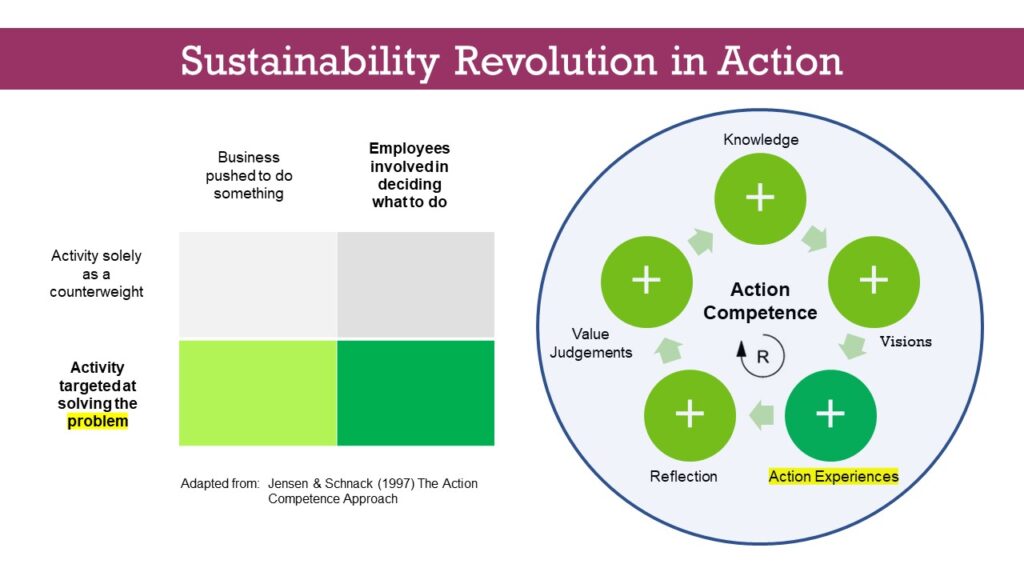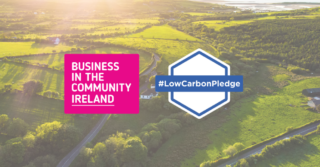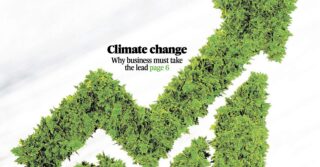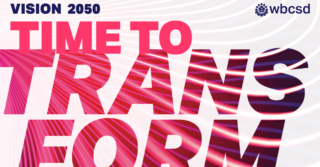How to drive radical action and change as a sustainability practitioner
During our latest events series #SustRev21, our Sustainability Adviser Johnny Meehan provided a series of key tips to our audience of sustainability practitioners on how to drive radical action and change.
Context is important. We are at the crossroads in how we work given the urgent need to tackle the climate and biodiversity emergencies and deliver the UN Sustainable Development Goals. To disrupt business-as-usual we need a radical approach to fully integrate the philosophy and principles of sustainability into our lives and work. As COP26 is upon us, and the new Climate Action Plan for Ireland is about to be released, there is a new and urgent context for action. It is time for practitioners to seize this moment and dare to do.
A good working definition of sustainability is that it is the outcome of strategy and transformation from the inside-out, which is about rewiring what the business does, requiring a radical shift in mindsets, behaviours, and business model. In simpler terms, to do no more harm.
As a sustainability practitioner, we are always on the look-out for something new to grasp, often forgetting what is already within reach.
Tip #1: Use all the tools in the Business in the Community Ireland toolbox
- Sign up and participate in all of the platforms we are building for you. By doing that, you are already aligning to the Climate Action Plan, Government & EU strategies and policies, and the UN SDGs. As practitioners we need to drive participation, especially among colleagues, because sustainability is everyone’s job.
- Put your management system to the test in the Business Working Responsibly Mark, the credible and externally verified standard for sustainability across the enterprise. The Mark is evolving to a higher standard in 2022 and continues to be a framework for pulling people together to achieve a common purpose.
- Actively participate in workshops supporting the Low Carbon Pledge and Elevate Pledge and in emerging communities of practice in BITCI peer groups. They offer collaboration opportunities where practitioners learn and upskill together.
- Tackle social root causes behind sustainability challenges and engage your colleagues in experiential learning by doing one of our Education and Employment programmes.
- Ask our advisors to take you through the BITCI Service Catalogue to help you to explain to others how the parts all fit together as part of a system for sustainable business. If your company is not fully participating across the system it means the approach to sustainability is not systemic or reinforcing, as well as lost opportunities for vital action experiences for your teams to learn about sustainability. Deliver multiple benefits for your organisation and many times the value of your BITCI membership. What is holding you back from more wide-ranging engagement?
Figure 1: The Nordic approach to sustainability
The figure above represents a Nordic model called the Action Competence Approach to Sustainability. In the grid on the left-hand side, the top two boxes in grey describe where we are today in Ireland, business is using sustainability activity as a counterweight, what it must do to be compliant or else to maintain social legitimacy, where the involvement of employees in decision-making is tokenistic. Yet, where we need to get to is the bottom right quadrant in deep green where sustainability activity is targeted at solving problems, and employees are fully empowered with the knowledge and confidence to take action, where they are fully involved in deciding what to do. Defining the problem is the kernel of strategy, so will that critical task be forever in the domain of executives and consultants who are themselves just learning about sustainability? Or will your business tap into the potential of its people and build capability from the inside-out to solve problem after problem to overcome obstacles and innovate to having a truly sustainable business. Sustainability demands ownership not outsourcing.
Tip #2: Get Radical with an Employee or Stakeholders Assembly
Consider for a moment that sustainability has finally become mainstream because governments, policies, and the laws are changing. While CSR and ESG did some good, the real impetus for change in 2021 is regulation and a bigger role for Government and their agencies. Recent progressive reforms in Ireland, including those in relation to Climate Action, owes much to something called “deliberative democracy,” the basis for The Citizens Assembly. A diverse group of citizens (employees or stakeholders in business terms) assemble at determined times and under defined rules, to hear evidence from experts about sustainability challenges or wider problems, the range of potential solutions, and the inherent trade-offs in dealing with complex issues. Under the rules, there is room for open dialogue, deliberation, inquiry, with good facilitation and the use of principles such as equality, respect, fairness, openness. Democracy is still a radical revolutionary idea, and as we have seen around the world, it is failing. The trampling of human rights goes hand in hand with trampling of the environment.
Start an employee or stakeholder assembly in your work culture as a proto-type, an experiment to hear new voices, assemble the evidence from experts, take time to deliberate and make reasoned decisions. It could very well be the case that a 21-year-old new starter might have more informed first-hand experience of the realities of our sustainability emergencies than the CEO. Take advantage of this untapped potential in your organisation. This innovation could strengthen your stance under the G for Governance in ESG. The first inner ring of the strategy wheel for sustainability is Employee Empowerment.
Tip #3: Draw on proven models, and borrow from new models in other sectors
While sustainability in business needs new models in terms of value, reporting, economics, accounting, there are many models and useful tools from decades of operational research which can be repurposed for sustainability given the overlaps with safety, quality, lean, systems dynamics, design thinking for innovation. One of the core challenges for a sustainability practitioner is understanding risks and impacts in the supply chain. Engineers and supply chain managers have core skills and experiential knowledge which lends itself to mapping the value chain to understand Scope 3 emissions in all their complexity, and to build a model that also captures the impact on people and Nature. Look for training in the following areas:
- Total Quality Management
- Total Safety Culture and risk assessments
- Lean Philosophy and tools like Voice of the Customer, 7 Wastes, 5 Whys, Value Stream Mapping, 5 S.
- Systems Mapping to understand the interdependencies and feedback mechanisms and what is meant by circularity. Especially the work of Donella Meadows.
- Design Thinking, proto-typing, innovation process, trying and failing regularly
- Experiential Learning Theory and Game Based learning.
- The Fifth Discipline by Peter Senge.
- Change Management, Kotter 8 Step, and other models.
For new emerging models look for training in the following areas (especially relevant for the Finance Dept. which is a critical lever for sustainability).
- Doughnut Economics
- Natural Capital Accounting
- EU Taxonomy and the EU Corporate Sustainability Reporting Directive
- Integrated Sustainability Strategy
- Sustainability Competency Frameworks and Leadership Models
- Sustainability Maturity Models from other sectors
Referring back to Figure 1, the rotating circle on the right is how to drive a reinforcing loop to develop action competence for sustainability. This model is highly relevant for everything that has been discussed so far from employee empowerment to integrating sustainability, for building capability across the full span of the enterprise so that sustainability is everyone’s job. The important foundational element is knowledge which allows people to hold different visions of a future where sustainability efforts are successful or what happens if they fail. Yet crucially, the facts or visions are not enough, we learn through having action experiences which is why participation and collaboration with others and going outside the classroom or the safe confines of the business-as-usual environment is so important to making a real change. We need radical collaboration, for while the sustainability emergency is a result of human activities exceeding planetary safety boundaries, we are still playing it safe within our own capability boundaries.
While we continue to hear positive things from COP26 and much anticipation around the new Climate Action Plan, for practitioners the challenge remains the same: to turn the plan into action and break-through the barriers that are preventing real progress on the Paris Agreement and UN SDGs of 2015.
Given the urgency of our predicament and new context for change it is finally time to get radical.
Tags: cop26, johnny meehan, sustainability







